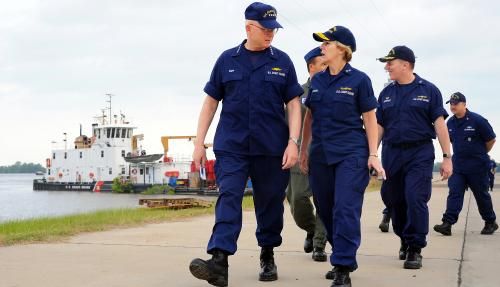
But even experienced river pilots have never seen anything like the roiling current now racing to the Gulf of Mexico. Since spring floods pushed the Mississippi to historic heights, America's busiest inland waterway has become one of its most challenging to navigate.
"If you're not scared of it, you should be, because it has a lot of ways of hurting you," Morace said this week as he slowly nudged his tugboat, the Bettye M. Jenkins, along the river bank near Vidalia, La.
Now frightening
The high water brings with it a host of hazards. Debris is everywhere, and the unusually swift current makes it difficult for pilots to go upstream. Good luck stopping if you're headed downstream. For those who make their living on the water, the river is a respected adversary in the best of times. Now it just plain frightens them.
On Friday, the Mississippi at Vidalia looked more like a stormy ocean than a river. Whitecaps frothed under the bridge that connects the city to Natchez, Miss., and whirlpools churned across the channel.
In many places, obstacles were hiding just beneath the surface. Some trees in Natchez were nearly submerged. A basketball hoop protruded about 2 feet above the water at a flooded-out court.
Authorities were investigating whether the turbulent conditions contributed to an accident Friday in which several grain barges broke loose from a towboat and three of them sank. No one was hurt.
The barges went down near Baton Rouge, prompting the Coast Guard to close a five-mile stretch of the river.
15-mile span closed
Earlier in the week, the Coast Guard briefly closed a 15-mile span of the river near Natchez because of the current and concerns that the wakes from passing vessels would put pressure on floodwalls. The wakes were also washing floodwater into some businesses.
Although the river was soon reopened, barge and tug traffic was still being tightly regulated.



Reader Comments
to our Newsletter